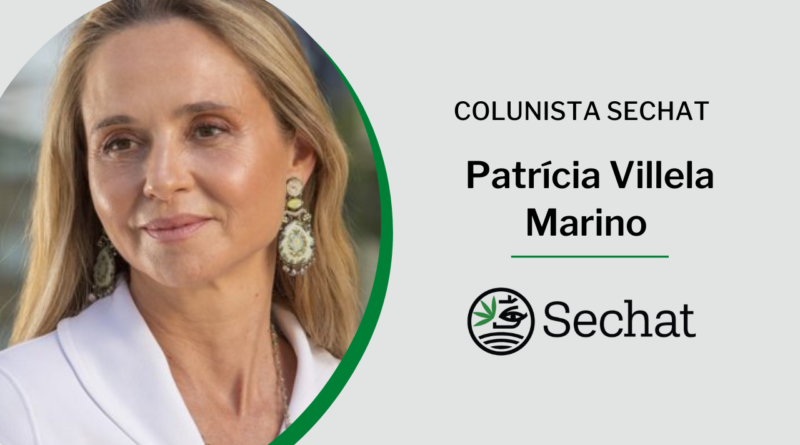Sechat: Cannabis Thinking and the importance of thinking about cannabis business legacies
Originally published on Sechat´s website
With the presence of big names in the sector such as Marcelo D2, Rogério Schiatti, Pedro Abramovay and Ad Júnior, thinking about cannabis becomes increasingly necessary in our country
Once again – and, fortunately, back in the face-to-face heat – we hosted at CIVI-CO another edition of Cannabis Thinking, the most important meeting for discussion of this topic in the country. And what an event! With the participation of Pedro Abramovay, Marcelo D2, Sheila de Carvalho, AD Júnior, and even the minister Rogério Schietti, of the 4th panel of the Superior Court of Justice, we had three days of conversations about cannabis and its medicinal, industrial, and recreational uses.
The discussion about creating a market for cannabis can never be dissociated from its history. As AD Junior and Sheila de Carvalho reminded us, the first law criminalizing cannabis, as early as the 19th century, was already racist – it only imprisoned enslaved people, not the money “lords”. Pedro Abramovay, in opening the discussions, emphasized how much the fictitious “war on drugs” is a racist and incarcerating ideology. The Rector of the Zumbi dos Palmares University, José Vicente, reminded us who are the people imprisoned in Brazil – a black and poor majority – and what the circumstances of these arrests are like. Justice Schietti himself, author of one of the decisions that granted habeas corpus for the planting of cannabis for four patients in Brazil, emphasized how many times he has received cases in which women have been arrested for carrying tiny amounts of marijuana for visits to their husbands, or how many absurd sentences have been given to people with small amounts of marijuana – all of this, proportional, of course, to their class and race.
Always accurate, Emílio Figueiredo, one of the pioneer lawyers in the defense of patients and their need to obtain medical cannabis, reminded us of the importance of educating children and adolescents to deal with the issue of drugs. Educating is more effective than repressing. In addition, we heard about solutions. Favela mothers and social workers, like Lúcia Cabral and Rafaela Figueiredo from Educap, who militate in the fight for public policies and access to health and education, now inserted in the discussion about medicinal cannabis. Students and professors from the Zumbi dos Palmares University who developed the Acolhe Platform, to help people who were victims of racism without being subjected to further embarrassment.
And the beautiful thing was to see that this solid base – the consensus about the connection of the incarceration, racism, and drug law agendas – permeated all the discussions of CT2022. If Marcelo D2’s “dream” was to participate in a debate about cannabis with a justice of the Supreme Court and two black women activists (Janine Rodrigues and Gabriella Arima), mine is that this understanding of the history of cannabis permeates the entire ecosystem of the sector. The cannabis market has a historical obligation to be ESG.
The opinions conveyed in this article are personal and the responsibility of the authors.
About the author:
Patrícia Villela is a lawyer, entrepreneur, activist, Sechat columnist and president of the Humanitas360 Institute, a non-governmental organization that aims to rehabilitate people who are, or have been, imprisoned.

